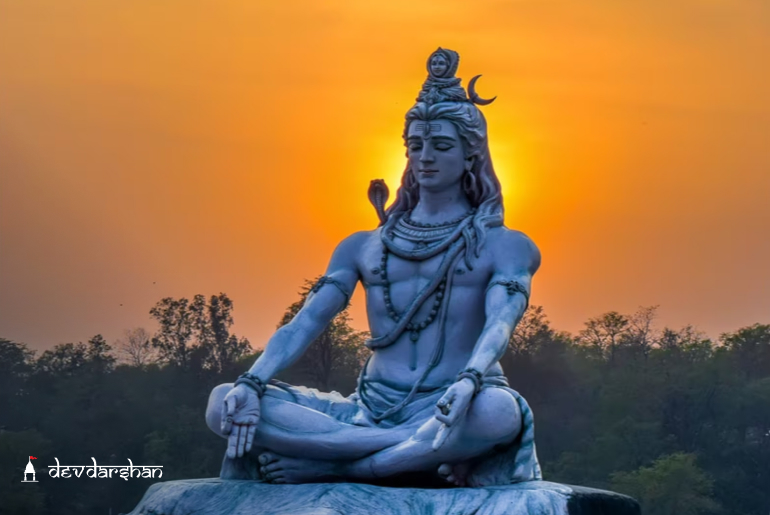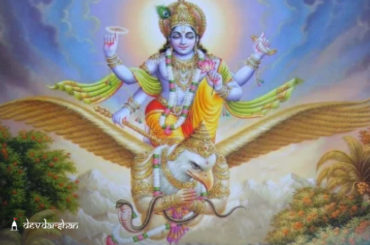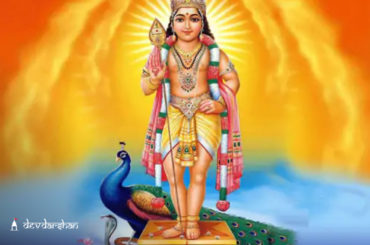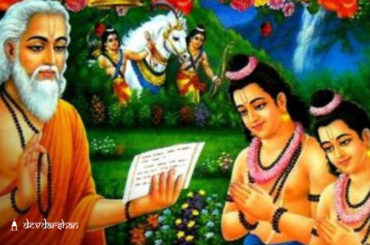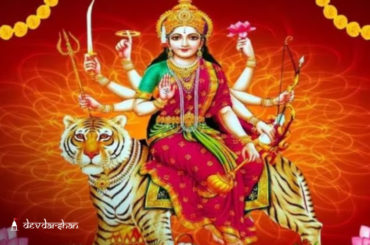Sawan Maas
Shravan month, also known as Sawan, is a period in the Hindu lunar calendar that holds significance in Hindu mythology and religious practices. It is considered the fifth month of the Hindu calendar and typically falls between July and August. The exact dates of Shravan month vary each year based on the lunar calendar.
Shravan derives its name from the Nakshatra (lunar mansion) called ‘Shravana’, which is associated with listening and learning. The month is considered highly auspicious and holds great importance in Hindu traditions. Devotees believe that observing religious practices during this month can bring blessings, spiritual growth, and fulfilment of desires.
During the month of Shravan, devotees often undertake vows and fasts, particularly on Mondays, which are known as ‘Shravan Somvar’. Fasting practices may involve abstaining from certain foods or following a strict vegetarian diet. Many people visit temples, especially those dedicated to Lord Shiva, offering prayers and performing special rituals like Rudrabhishekam, where offerings of water, milk, and other sacred substances are made to Lord Shiva’s lingam (symbol).
Also Read: Shravan Somvar Vrat
Shravan month is associated with the worship of Lord Shiva, and devotees seek His blessings for health, prosperity, and spiritual well-being. The belief is that Lord Shiva is pleased by sincere devotion and grants the devotees their prayers and wishes. Devotional songs, hymns, and chanting of sacred mantras dedicated to Lord Shiva are also common during this month.
Apart from the religious significance, Shravan month is associated with cultural festivities and celebrations. Various festivals like Nag Panchami, Raksha Bandhan, Hariyali Teej, and Krishna Janmashtami often fall within this month. These festivals are celebrated with joy, family gatherings, special rituals, and traditional customs.
Overall, Shravan month is considered a spiritually charged period in the Hindu calendar, providing an opportunity for devotees to deepen their religious practices, seek blessings, and engage in acts of devotion and self-discipline. It is a time for reflection, prayer, and expressing gratitude towards the deities while participating in cultural celebrations.
Sawan Maas 2023: Date, Muhurat and Timings
This year, Shravan month dates for North and South India as are follows:
- Shravan Month Starts: North: Tuesday, July 4, 2023
- Shravan Month Ends: North: Thursday, August 31, 2023
- Shravan Month Starts: South: Tuesday, July 18, 2023
- Shravan Month Ends: South: Friday, September 15, 2023
There is an extra Shravan month or Adhik Shravan Mahina in 2023. This is from July 18 to August 16, 2023
Significance of Shravan/ Sawan Month
Shravan, also known as Sawan, is an auspicious month in the Hindu calendar, typically falling between July and August. It holds great significance and is considered a sacred period for devout Hindus. Here are a few reasons why the month of Shravan is important:
Devotion to Lord Shiva
Shravan is particularly dedicated to Lord Shiva, one of the major deities in Hinduism. Many Hindus observe fasting and offer prayers to Lord Shiva during this month. Mondays of Shravan, known as ‘Shravan Somvar’, are especially significant, and devotees visit Shiva temples, perform Rudrabhishekam (a ritualistic offering to Lord Shiva), and chant prayers and hymns in His honour.
Also Read: Importance of Rudrabhishek Puja
Spiritual Cleansing and Self-discipline
Observing fasts and engaging in spiritual practices during Shravan is believed to purify the mind, body, and soul. It is considered an opportunity for self-discipline, introspection, and seeking spiritual growth. Fasting, prayer, meditation, and acts of charity are commonly practised during this month to enhance spiritual well-being.
Nature’s Bounty
Shravan is the monsoon season in India when the earth is revitalized with abundant rainfall. The month is associated with lush greenery, blooming flowers, and flowing rivers. Hindus perceive this as a time to appreciate nature’s beauty and offer gratitude for the blessings of fertile land, water, and agricultural abundance.
Festivals and Celebrations
Various Hindu festivals and auspicious occasions are celebrated during the month of Shravan. Some of the notable festivals include Nag Panchami (dedicated to the serpent deity), Hariyali Teej (celebrating the union of Lord Shiva and Goddess Parvati), Raksha Bandhan (symbolizing the bond between brothers and sisters), and Krishna Janmashtami (commemorating the birth of Lord Krishna). These festivals bring communities together, foster social harmony, and promote cultural values.
Traditional Practices
Apart from religious rituals, Shravan month is associated with various traditional practices. Women often adorn themselves with green bangles, wear green attire, and create beautiful Rangoli designs using vibrant colours. People engage in folk dances, sing devotional songs, and share festive meals with family and friends.
It’s important to note that the significance and practices of Shravan may vary across different regions and cultural traditions within Hinduism. Nonetheless, the month is generally regarded as a time for deep spiritual devotion, self-reflection, and celebrating the beauty of nature and community.
Festivals Celebrated during Sawan Maas and Their Dates
- Kamika Ekadashi – July 13, 2023
- Hariyali Teej – August 19, 2023
- Nag Panchami – August 21, 2023
- Shravan Putrada Ekadashi – August 27, 2023
- Shravan Purnima / Nariyali Purnima – August 30, 2023
- Rakshabandhan – August 30, 2023
- Sanskrit Diwas – August 31, 2023
- Krishna Janmashtami – September 6, 2023
- Rishi Panchami – September 20, 2023
Learn about the Religious Benefits of Fasting during Sawan Maas
Check out various Online Puja and services provided by DevDarshan here and get your bookings done in one click. If you want to know more about Indian culture, Indian Temples, Pujas and festivals, then download the DevDarshan App. Don’t forget to share this blog if you liked.

